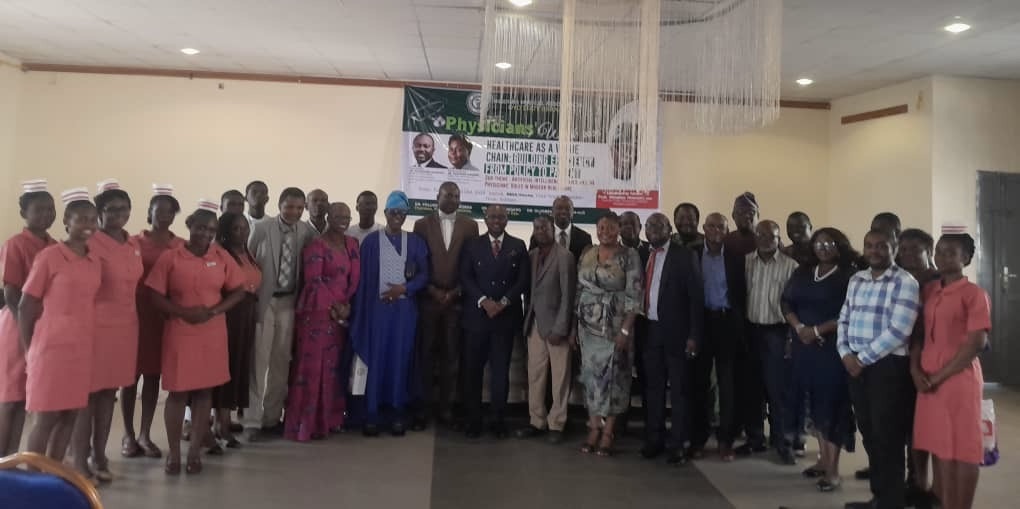In a significant advancement for chronic disease research, Nigerian-born physician and public health expert Dr. Olamide Asifat has published a landmark U.S.-based study revealing the substantial impact of smoking on mortality among individuals with Chronic Obstructive Pulmonary Disease (COPD). The study, titled “Effect of Smoking on Mortality in Individuals With Chronic Obstructive Pulmonary Disease (COPD) in the United States,” was published in Respiratory Care and offers new insights for clinical decision-making and public health planning.
Drawing from nationally representative data collected through the National Health Interview Survey (NHIS) and the National Death Index, the study evaluated survival outcomes in 968 adults diagnosed with COPD. The results are compelling: individuals who currently smoke faced an 89% higher risk of death, while former smokers still experienced a 62% elevated risk compared to never smokers—even after adjusting for demographic and clinical factors.
“These numbers are not just statistics—they reflect preventable deaths,” said Dr. Asifat. “Our findings highlight the lingering danger of tobacco exposure, especially in individuals already living with chronic respiratory illness.”
Unlike earlier studies that focused on specific regions or demographic groups, this research leverages a nationally representative sample—helping to fill critical gaps in United States(US)-based evidence related to smoking and COPD outcomes.
A particularly notable finding of the study was the role of marital status. Single or never-married former smokers with COPD faced the highest mortality risk, with a hazard ratio of 3.71. “This suggests that social support networks may have protective effects and should be considered in chronic disease management,” Dr. Asifat explained.
The study employed rigorous statistical approaches, including Kaplan-Meier survival analysis and Cox proportional hazards regression, to model survival trends and quantify risk.
“This is not just a call to quit smoking,” Dr. Asifat emphasized. “It’s a call to rethink how we support patients with COPD—clinically, socially, and behaviorally. Long-term care must address more than lung function alone.”
Dr. Asifat and his team call for more aggressive smoking cessation campaigns, tailored interventions for former smokers, and programs that consider the psychosocial needs of COPD patients. “If we want to reduce COPD-related mortality, we must think beyond just quitting smoking’’, he asserted. “We need comprehensive strategies that address long-term management and mental health support”.
He also pointed out the need for clinicians to assess smoking history with nuance. “Not all former smokers are alike. Time since cessation, level of dependence, and presence of comorbidities must inform patient care”, he said.
In addition to his contributions to respiratory health research, Dr. Asifat is widely recognized for his interdisciplinary work on health equity. His previous studies have explored disparities in colorectal cancer screening and digital health interventions for obesity. His scholarly focus consistently centers on the intersection of clinical medicine, epidemiology, social determinants of health, biostatistics, and public policy.
Dr. Asifat holds a medical degree from Obafemi Awolowo University in Nigeria, a Master of Public Health from East Tennessee State University, and is a Fellow of the Royal Society of Public Health (FRSPH). He has shared his research at leading academic platforms, including the American Public Health Association (APHA), Tennessee Public Health Association conferences, and the American College of Gastroenterology Annual Scientific Meeting.
“This study is a wake-up call,” he concluded. “COPD doesn’t just impair breathing—it silently shortens lives. With the right data, we can shift the odds and improve survival for those who need it most.”
As COPD-related deaths continue to rise—particularly among smokers and aging populations—Dr. Asifat’s contributions provide valuable direction for clinicians, researchers, and public health leaders working to reduce this preventable burden. His research offers vital insights for clinicians, policymakers, and global health leaders, ensuring that COPD prevention and management strategies are evidence-based, socially informed, and adaptable across diverse health systems.






